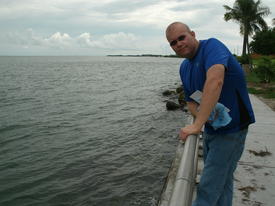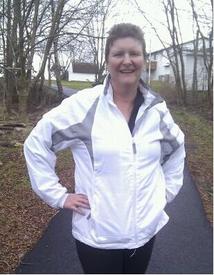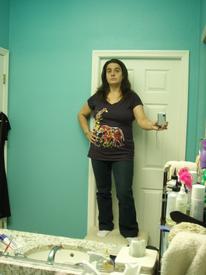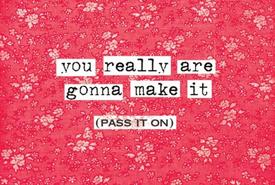does MFP work for kids?

afsky20
Posts: 7 Member
This is working for me and now my 11 year old asked if he could do it. (he is overweight- in the 95 percentile according to his pediatritians weight chart) We have been eating healthier and cutting out the junk-he has lost almost 10lbs over the summer- but he wants to do more. Does anyone know if the calorie amounts given by MFP will be adequate for a growing kid?
0
Replies
-
I would personally think not, but you should ask his DR what is the right amount of calories for someone of his age/height/weight.0
-
No.. there is a reason this site is for people 18+.
Your child is still growing.. and for all you know, he may grow a ton in these next few years and go from being overweight to being a normal weight.
I'd talk to his doctor and ask for a recommendation to a dietitian, and then ask them how much he should be eating.0 -
seek medical advice - but I can't see any reason why logging meals can do anything but help - and MFP makes this so simple.
We often get them to keep a food diary to try to find where the refined carbohydrates are getting in to make such havoc with their teeth when Mum is in denial about sugar intake.
Thankyou so much, you have just made me realise how useful MFP could be for my patients. Thanks!0 -
No.. there is a reason this site is for people 18+.
Your child is still growing.. and for all you know, he may grow a ton in these next few years and go from being overweight to being a normal weight.
I'd talk to his doctor and ask for a recommendation to a dietitian, and then ask them how much he should be eating.
this.0 -
my 13 year old is overweight --- part genetics (we grow big guys at 6'3" as average) but due to concussion missed 2 seasons of football. i created an account for him not to lose weight but for him to see what he was eating. he's a carb addict!! we found out he was at 3x's the amount of sugar but at a deficit in calories every day. he enjoys logging on to see how many of the good stuff he ate and if he can keep the sugar down. if he loses weight in the process, fine ... i'm happy that he's aware of what he's eating and is focused on making good choices. he has no friends on here, cannot talk on chats or interact w/ anyone. i'm sure there's another tool at "www,myfoodpyramid.com" but this is easier because i'm on here every day. good luck!!! friend me if you want - happy to have a mom here w/ a son in the same boat!0
-
eating healthier and cutting out the junk food is appropriate for everyone. Calorie restriction is not necessarily the right thing to do. Go to his pediatrician and consult with him/her on what is right for your son.0
-
my oldest son is overweight i made him aware of calorie intake and he has adjusted he has only lost 2 pounds in a month but he is not gaining ! he eats alot but doing better. i took him off soda and that makes a huge difference0
-
MFP is specifically not for kids. You might look into Spark kids which is a similar site designed for kids.
MFP has helped me to lose over 100 pounds. I also have an 11 year old son who is overweight, and I have discovered that my example and open communication have been extremely effective in helping him. He was just talking to me the other day about how he can't believe what his class mates consider to be a healthy snack. I loved it!! I am amazed at how educated he has become about nutrition.0 -
Make exercise fun. Go ride a bike, play at the playground instead of being cooped up in front of a tv, or computer all day.
Feed them healthy snacks- carrot sticks, etc. That's all there is to it.0 -
Ireckon if you find out from a dietitican how many calories he should be consuming a day then this would be a useful guide to helpo track his food and exercise, but I wouldnt trust the calculation on here for a child. Find that bit out first and then use this as a tool rather than the rule!0
-
I can't see any reason why the LOGGING aspect of the site can be anything but beneficial to your son, however,the calorie and macro nutrient goals you would need to speak to your doctor about and set them as he/she describes. also, remember that as a growing child there will be times when your son is overweight and others when due to a growth spurt he may change to 'normal' or even under weight. especially with boys, they need a little excess calories to help them grow tall. but overall, go on what your healthcare practician/ gp/ doctor says good luck to you both :-)0
-
I would not encourage dieting in a growing child. His biggest growth spurts are yet to come, and sometimes they come with chubby periods (girls especially). What is important for him at this age is exercise and eating good things. They need to eat fat for growth of brain and nerve tissue, so even there, dieting principles would not apply.0
-
10 lbs over the summer is great. (Maybe a little too much). Just keep him doing what he's been doing. Eating clean and getting outside and playing.0
-
I think it is wonderful to be encouraging. However at 11 it isn't his responsibility to have to log food he eats. He should be playing and enjoying his childhood. You can help him to be physically active with you and have fun. Serve him healthy options and teach him how to eat healthy. If you start him calorie counting now you may be setting him up to have an unhealthy relationship with food and exercise. If you teach him and help change his habits together with you maybe it could be a healthy and pleasant change. He is go get taller too and that will help him naturally thin out. Good luck.0
-
thanks all- you have given some great input. I think logging just to see what he is eating is a great idea but absolutely no set "diet" calories for him. he is still growing so if he (and me) can get an idea of where he might need improvements that may be helpful.0
-
No, definitely not. Talk to your physician. Here is a link that will give you some ideas:
http://www.livestrong.com/article/220223-diets-for-11-year-old-kids/0 -
You could always talk to your doctor or a nutritionist to find out what his calorie/fat/carb needs are and edit his daily allowances. I don't see the harm as long as it's done in a positive and healthy manner.0
-
Whoa. It's still the internet and no way to control who he would encounter on here. . . I think he wants to log his food. which is cool. and can be done on a spreadsheet if you cannot find an age appropriate app. I would search the message boards and contact the MFP administrators. Good luck to you! and kudo's on introducing health to him at an early age.0
-
As it has been said, this site is meant for people 18 and over.
As a child, he still has a chance to develop normal, healthy eating and exercise habits that will allow him to regulate his weight without having to count calories. This is the natural, human animal way of going about it. We adults should have learned this sort of thing and not be scrambling to nickel and dime everything we put into our mouths or exert on a treadmill... but this is the way we must compensate, in a society that is so messed up when it comes to how we treat our bodies. We've developed a complex about it, frankly. Please, save your son from being one of us. Allow him to be one of those increasingly rare adults that is well-adjusted and active, and never has to count a thing. These people do exist, I assure you, and they are so very lucky.
Some key things I would teach your son (and lead by example) are that there are no truly "good" or "evil" foods, and that almost anything is okay in moderation. If there is anything that you must do differently than he does, for you to lose weight as an adult, explain to him why it applies to your situation and not his (and if you don't have a good explanation, chances are it's an approach you shouldn't be taking). Teach him the difference between eating because he is bored/emotional, and eating because his body needs nourishment, and how to recognize the signs of true hunger (including how NOT to wait until he is TOO physically hungry). Explain about how it takes awhile for his stomach to tell his brain that he is full, and that's why he should eat more slowly, learning to enjoy the flavours and textures of his food, and also be willing to leave his food for later... there is no rush to eat it, and there will always be more food if he needs it (so don't use the body as a garbage disposal, to cram in as much of an available treat as he possibly can. There will always be more tempting things, in the future. It's OKAY to leave that extra cookie for someone else, etc). Explain to him that the healthier, whole foods should make up most of what he eats (again, as part of moderation), and how lean meats and other proteins, healthier fats, whole grains (and fibre), fruits and vegetables, and drinking water will keep him more full while he is in the process of losing weight, and that he has to eat in the same way once he gets down to a healthy goal, and NOT just while he's in the process ("it's a lifestyle"). If you still can, at this time of year and in your area, bring him to a U-Pick at a local farm, and/or the Farmer's Market, and have him learn more about where his food comes from. It is so much easier to appreciate a fresh, ripened-on-the-vine fruit or vegetable if it you pick it yourself, if you can smell the earth on it, and if you both can talk to the farmers who grow and sell their own produce and other whole-food products. He is also at the perfect age to start learning how to cook (with adult supervision). If he learns to appreciate quality ingredients, including with treats (a homemade baked good with real butter, etc, is better than something from a vending machine), this will also help with moderation. Getting him involved in preparing healthy, tasty dishes is another great way to develop an appreciation for this kind of food.
As for physical activity, he really shouldn't be conscious of what muscles he's working, or how many calories he is burning. Exercise for kids should be about having fun. Get him involved in sports, riding a bike with friends (family bike rides, too, and family walks), water fights, you name it. Having him confident enough in sports while he is still pre/early junior high will set him up for a successful foray into school athletics programs, and subsequently good homework/sleep/other structured habits, in his junior/secondary years of school and beyond.
Of course, I would still recommend seeing your family doctor about this, just to cover the bases and see if they suggest anything that I'm missing.0 -
I believe this site is only for adults but like some of the above posters have said, there are places like Sparks which is for kids.
http://teens.sparkpeople.com/indexteen.asp
If you get him a Fitbit, their site has any age limitations but that's because their site is similar to ours and it's part of owning the Fitbit. Their database on foods isn't as good but he tracks all the same information.
www.fitbit.com
This is another popular site. I found nothing on the terms of use regarding teens.
http://www.fitday.com/about
This one states it does not collect information from kids BUT parents may give you permission. That means, mom or dad has to sign you up I believe.
http://www.myfooddiary.com/0 -
It's very wrong to encourage a child to succumb to the fat-phobic societal stigma by counting calories. The best thing you can do is teach him how to eat clean and encourage playing and exercise. That is the basic principle that MFP plays on to help adults lose weight - it's an aid to support older people who have hard habits to break. A child can still make new habits easily, he just needs your help.
Also, I used to be a very fat child, but when I grew taller (between 11-16) I grew into my mass and I was quite thin (see profile pic). My dad always said he was so worried that I was going to keep growing, but my growth spurts just outran my fat loss (I gained current weight when I started taking the contraceptive pill). This is very likely to happen to your son if you just get him eating clean and healthy.
If you're *really* concerned about his weight, see a doctor, don't "put him on a diet".0 -
As a child, he still has a chance to develop normal, healthy eating and exercise habits that will allow him to regulate his weight without having to count calories.
I definitely believe that there is flexibility in this - kids love to learn and learning about nutrition and fitness can be a part of the big picture of growing up. As a kid, I didn't understand nutrition because my mom did all the cooking and portion control. That didn't teach me what was good to eat or help me learn about cooking for myself. I never understood about the dangers of sodium or whether I was even eating too much out of a cereal box. I never even looked at the nutrition label. No one told me why they were important. A website can be a great tool that goes beyond calorie counting.
But, honestly, it took me about 40+ years of yoyoing up and down to figure it out. My sisters are skinny, I'm not. I inherited the genetics from my dads side where the women are bigger. As a mom, you can show him that it's not just calories - it's what you put into your diary. He can learn what items are truly nutritional by seeing the numbers - fat - sodium - fiber and more. You can teach him portion control by showing him what a portion really is (for him) and what's healthier versus what isn't. This may be a good time to show him the new government pyramid (they have an online tool to set it up to show you what you should eat). Kids sometimes need visual tools. By watching his fiber (and teaching him about it), he'll learn why it's important. He won't have to use a diary for life - he'd be using it as an educational tool. In the end, I think it may stick better once he understands why it's so important to watch processed foods so closely. Heck, learning this sort of stuff may encourage him to become a medical doctor like a pediatrician.almost anything is okay in moderation.
I wish this were the case but it's not necessarily true. I followed that path and now I'm pretty heavy and trying to change my life. Heck, later in life, most college plans provide the food and they don't tell you correct portions which is why you gain the infamous 15 pounds. Frankly, in today's society, there are so many hidden calories that it's hard to develop any sort of moderation. If anything, if you go the all natural food way, kids leave home and go crazy buying stuff they couldn't have and gain tons of weight. The key is understanding nutrition and I wish moderation were the key. It never worked for me. Even eating out was a surprise, most kids would never question it because they don't even know this is happening. In the past, restaurants did not create these huge portions and veggies were not a decoration - they appeared on our plates in larger numbers.Getting him involved in preparing healthy, tasty dishes is another great way to develop an appreciation for this kind of food.
I believe you're absolutely right here. Kids need to learn to cook for themselves and it wouldn't be a bad idea to take them grocery shopping and point out details on labels and show them which foods are best and even how to buy foods at a better price. Heck, teach him how to make his own waffles, cook and marinate steaks wisely, and even bake a chicken. It won't hurt your son to learn to cook. Some of the best chefs in the world are also males. Who knows, he may get interested enough that you could spawn a career. You could really get into it by setting up a mini-garden and have him grow his own tomatoes for the family - maybe strawberries?As for physical activity, he really shouldn't be conscious of what muscles he's working, or how many calories he is burning. Exercise for kids should be about having fun.
As for exercise, well the very things we talk about here - HRM's/Fitbits - nutrition - food choices - all of that appears now in 9th grade in high school. In Florida, the kids take a class and it's intense and they weigh themselves, keep food diaries, pretty much even track their exercise (heart rates) so it's not something a child can't do. I was actually surprised when I talked to my friend (whose a teacher) and found out what the states expectations were and it wasn't just go out and have fun. I know that a lot of the coaches have their football players in weight classes and train their kids on muscle structure and building them correctly to avoid injuries. Also, being aware of these sorts of things helps when kids stop being as active on leaving high school. I went to college, stopped exercising and studied like a madwoman, and promptly gained weight. I had no idea how my former way of eating (due to my exercise level) would affect me. Knowledge is power.
You're right that fitness can be fun but it's not all just going into the field and playing. I think it's not a bad thing to help them develop habits of exercise and eating right and even learning to cook. Unfortunately, sometimes a budget/ability to get your child into a sport may hamper free play. Also, some team sports have limits on players. That's why they have tryouts. Some activities are not free so it may be up to mom and dad to take them to a local park for a walk. Also, if mom and dad are working weird hours, it may be difficult to squeeze in little leagues. Also, depending on where you live, sometimes there is no safe place to play outside so finding that alternative can be tough. If a child wants and asks to run on your treadmill, is it that bad to allow it? If they want to use light hand weights, is it that bad? I don't think it's bad. I don't think it should be forced on a child - it's up to them but you can show them and see if they want to give it a try (under a physicians care of course).Of course, I would still recommend seeing your family doctor about this
Yes - absolutely. I would say including your doctor in on the plan would be fantastic. You can ask for bloodwork to verify there are no nutritional deficiencies and set up a game plan on how often they'll come in to verify they are healthy. I would say you can even have your son print out reports on what he's eating to talk to the doctor about it. It certainly will be a surprise for the doctor. I don't recall any of my doctors as a youth asking me about what I'm eating and such but he could probably help to some degree with the physical aspect by verifying that all is well. But, doctors do know that young bodies have limits as they are growing so they would be great advisers in the path to learning about nutrition. Heck, I could see your son printing off diaries and talking to the doctor about what he's eating and maybe asking about suggestions. It may make visiting the doctor less stressful.0 -
id of thought if you were to find out the correct nutritional info what calories they should be eating for their age height etc... then the logging part would only work out as useful...
but then theres a fine line... you dont want to end up with an eating disorder on your hands..... a child has to live!0 -
almost anything is okay in moderation.
I wish this were the case but it's not necessarily true. I followed that path and now I'm pretty heavy and trying to change my life.
Possibly an argument on semantics here but the "anything is okay in moderation" simply means that individual food items outside the context of the entire diet are not inherently lipogenic.
If you mentally or physically are not CAPABLE of exercising moderation (can't eat a handful of chips without eating the bag) then this means you aren't able to moderate.0 -
id of thought if you were to find out the correct nutritional info what calories they should be eating for their age height etc... then the logging part would only work out as useful...
but then theres a fine line... you dont want to end up with an eating disorder on your hands..... a child has to live!
I totally agree with you. That's why I mentioned the food pyramid and also a doctor. Knowing what you have to eat is critical and depending on age, height and a variety of factors - it can be different for each person. I think it would be great for a kid to become aware of it so they don't accidentally under eat on their calories and at the same time, they learn about eating healthy and how much energy it gives the body.
Unfortunately, I think there's a lot of information out there that wrongly tells people you need to starve yourself and kids learn that fact from their parents or their peers and then you have an awful cycle of unhealthy eating.0 -
I would really encourage you to pay more attention to your kid's eating habits and do what you can to influence better dietary choices WITHOUT the kid having any involvement in food tracking. I absolutely think that's a dangerous path to put a kid on.
I also think you need to go your best to keep him active, get him outside running around and expending energy rather than on the couch playing video games/etc.0 -
It's not a good idea to get your child to engage in calorie counting at such a young age. This can turn into an obsession and is not safe. As recommended by everyone else, just keep watch of his eating habits and keep him active. Good luck!0
-
Ask a doctor how many calories he needs rather than working it out on here and then get him to log meals on here to make sure he doesnt go over?0
-
Possibly an argument on semantics here but the "anything is okay in moderation" simply means that individual food items outside the context of the entire diet are not inherently lipogenic.
If you mentally or physically are not CAPABLE of exercising moderation (can't eat a handful of chips without eating the bag) then this means you aren't able to moderate.
Ironically, eating a small handful of chips, even in moderation, can be extremely high in calories depending on the product you picked. If you're a woman, those 10 chips are the difference between gaining or losing weight if they easily run at 250 calories depending on what you've picked to eat. Sometimes, you have to choose between one item or another.
It's a matter of nutrition - what's lower in calories and healthier - yet occasionally mixed in with higher calorie laden foods. Yes, I could increase my exercise BUT I also have a slight foot injury that limits the amount of exercise I can do right now so I have to watch I don't overdue my food. I've had to pick between breading my pork chop or adding a potato. It happens.
For example, I got to thinking about what I've seen kids eating at our school.
Regular Doritos run about 140 calories for 12 chips. However, baked Doritos (what they serve) - same size - run about 90 calories. It's moderated by the school which allows them to eat one bag only. This doesn't teach them how much they should eat - they see it as the school isn't letting them eat enough.
But, when a kid gets home, do they read the label on the big bag and pull out 12 chips? It's not the matter of being capable, it's a matter of not even being aware of what they are eating, how much is acceptable, and why it might not be healthy. It's easy. It's on the shelf. It must be healthy. You have to teach HOW to moderate which is why I said it's not a bad idea to teach this aspect of nutrition. If you knew the numbers of kids who've asked me questions like "What's wheat? Can you eat cookies? Pizza" you'd understand what I mean by they have no idea what they are eating. I know this because they always try to be nice and offer me a cookie or something from a snack they brought from home and become confused when I mention my allergy. Some kids don't even know what real food actually is because they live out of boxed meals. We've changed their world and eating healthy has not become the norm. Kids really have it hard when it comes to being moderate and parents are the only ones who can make a big difference for them. Basically, I'm saying you teach "moderation", it's not something you're born with.0 -
www.choosemyplate.gov is a website that kids can use that is similar to this. It does not have an app though.0
This discussion has been closed.
Categories
- All Categories
- 1.4M Health, Wellness and Goals
- 398.5K Introduce Yourself
- 44.7K Getting Started
- 261K Health and Weight Loss
- 176.4K Food and Nutrition
- 47.7K Recipes
- 233K Fitness and Exercise
- 462 Sleep, Mindfulness and Overall Wellness
- 6.5K Goal: Maintaining Weight
- 8.7K Goal: Gaining Weight and Body Building
- 153.5K Motivation and Support
- 8.4K Challenges
- 1.4K Debate Club
- 96.5K Chit-Chat
- 2.6K Fun and Games
- 4.8K MyFitnessPal Information
- 18 News and Announcements
- 21 MyFitnessPal Academy
- 1.5K Feature Suggestions and Ideas
- 3.2K MyFitnessPal Tech Support Questions




















